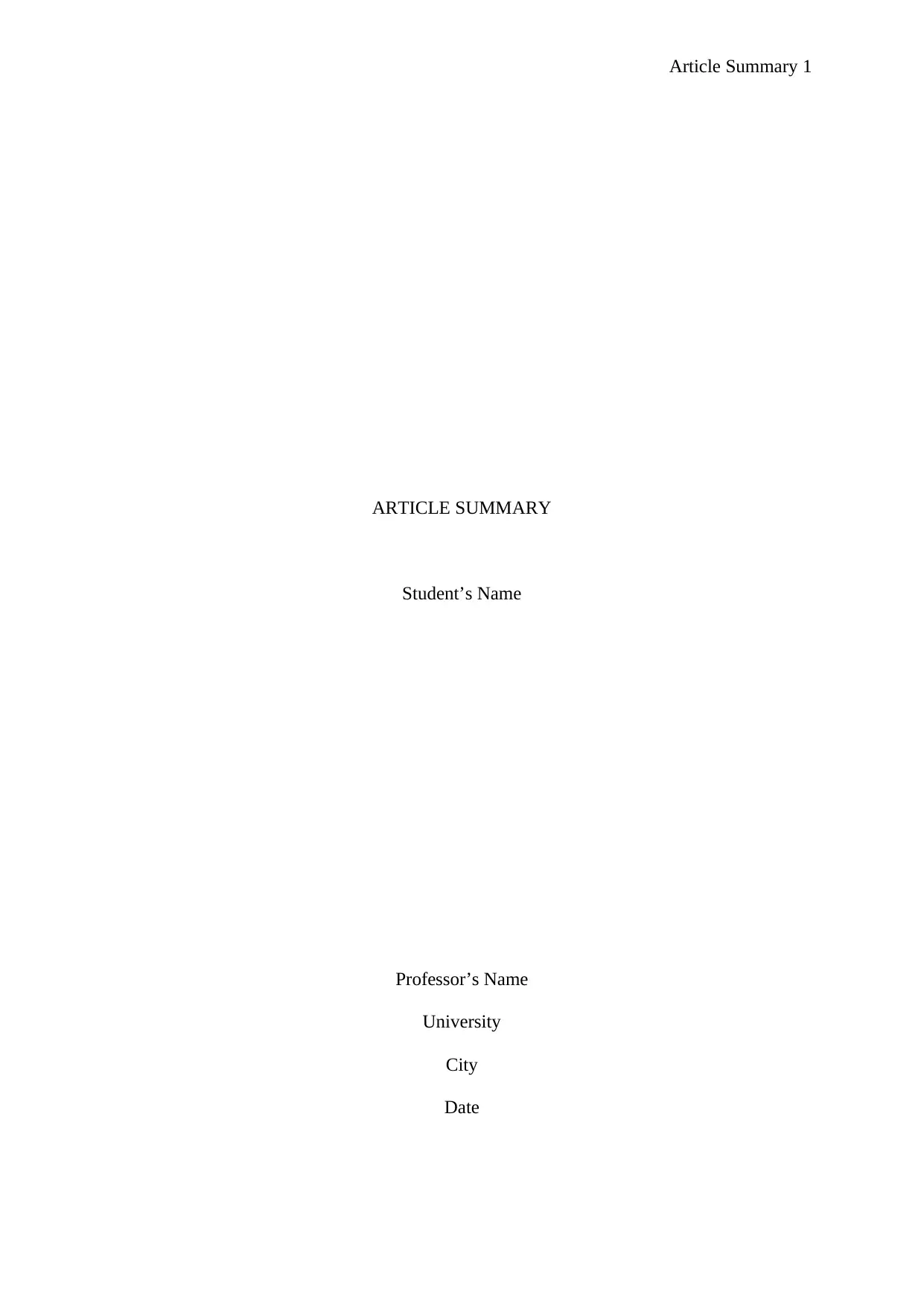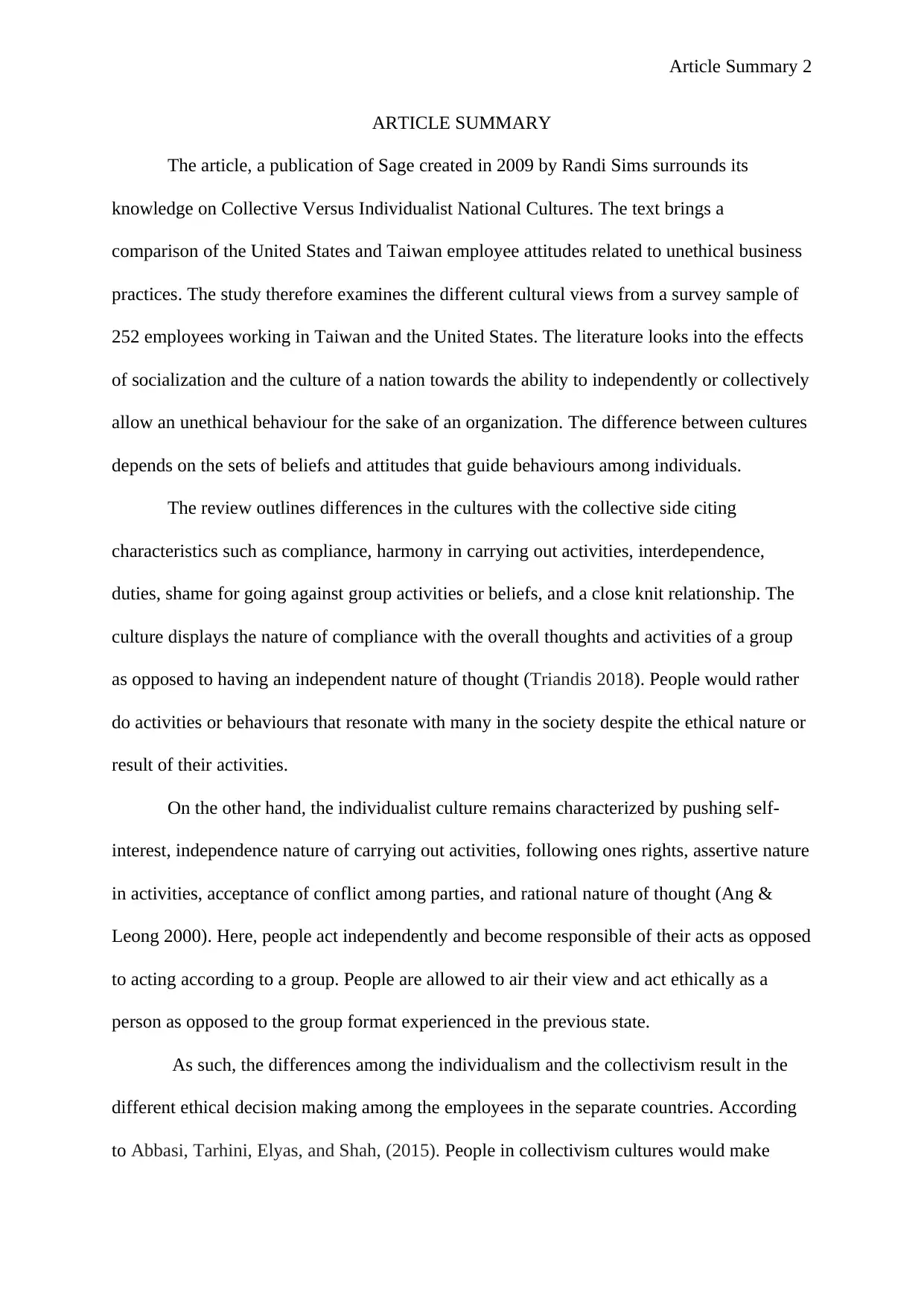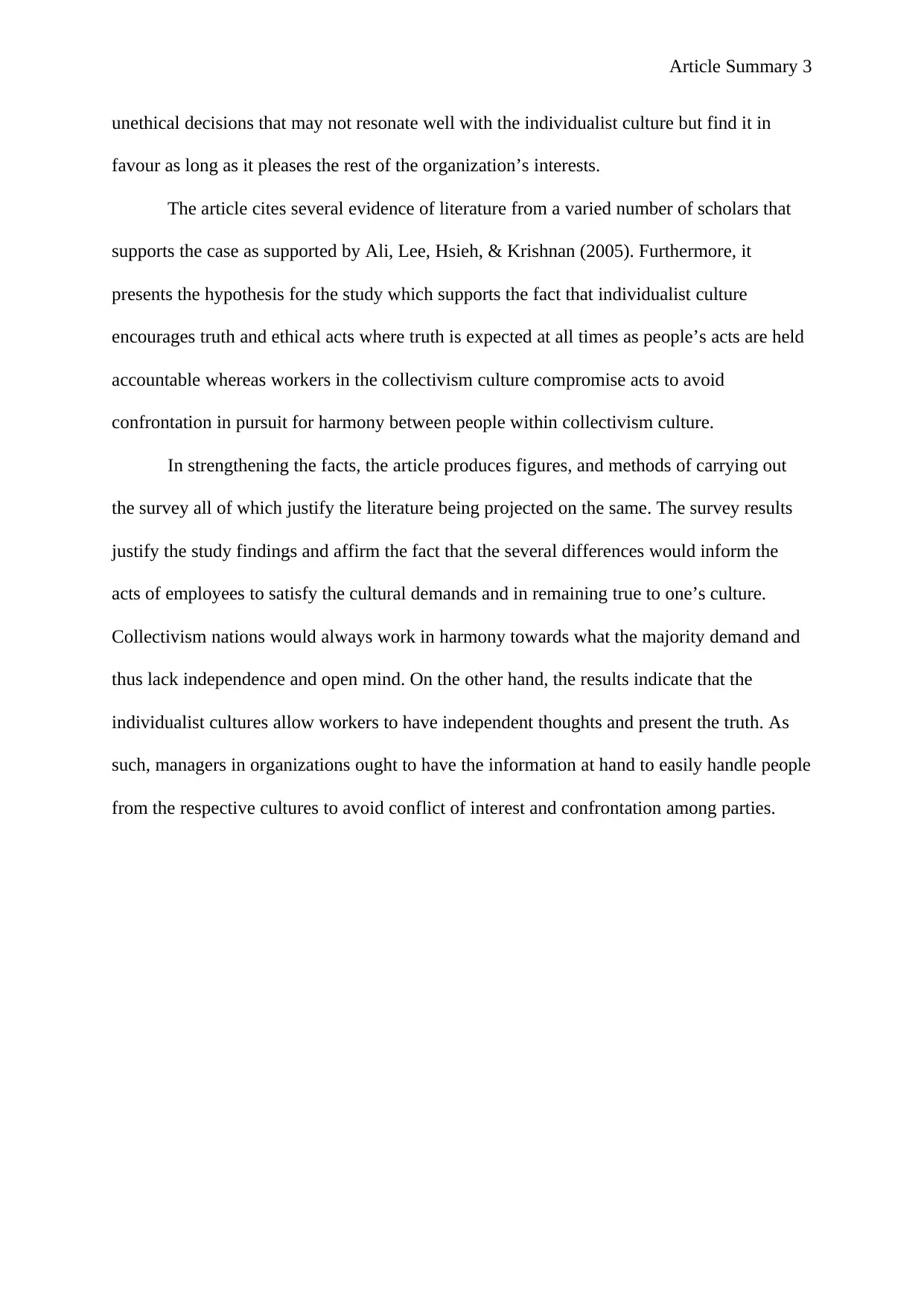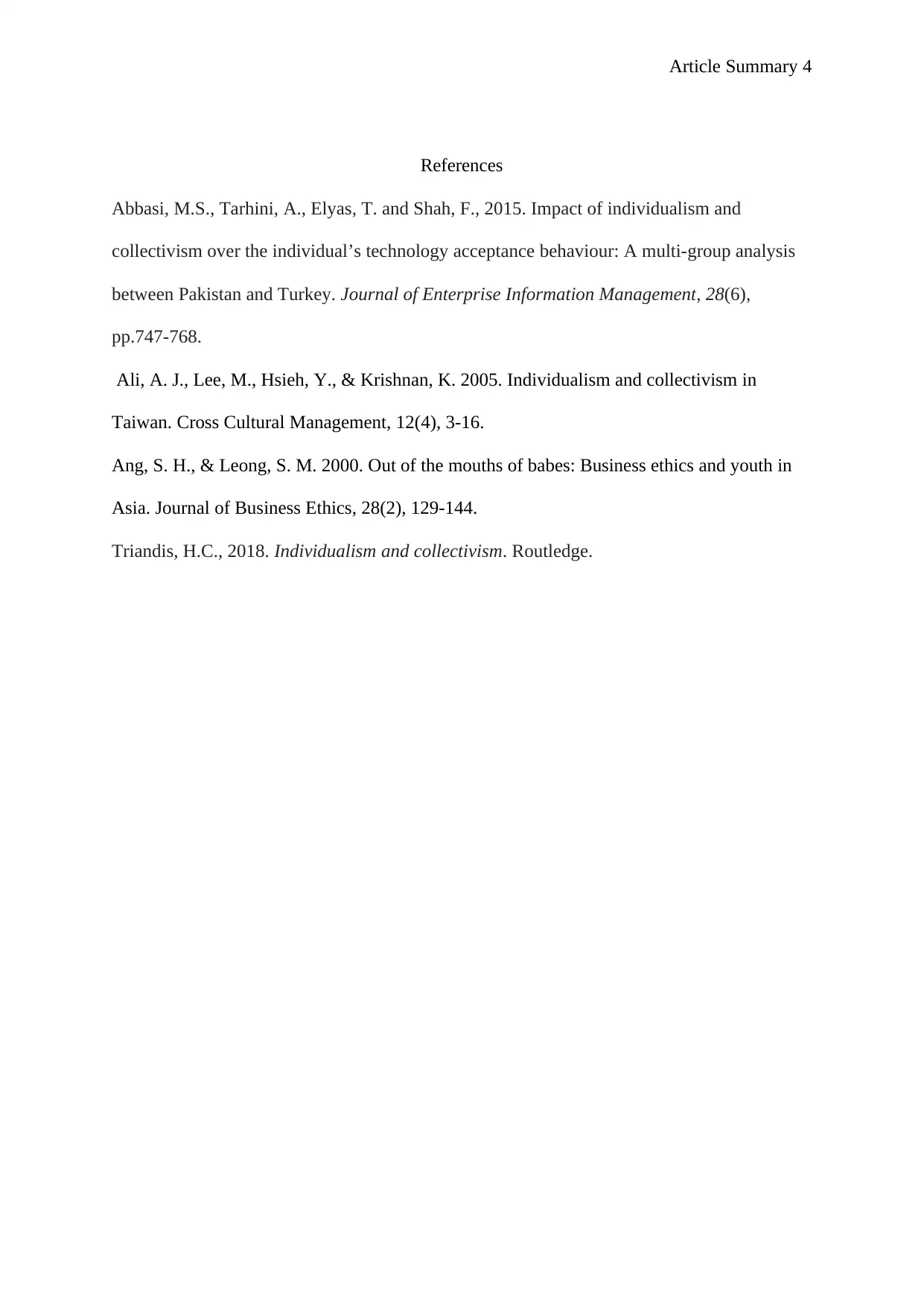Collective Versus Individualist National Cultures: A Comparison of Employee Attitudes in the United States and Taiwan
VerifiedAI Summary
The article compares the attitudes of employees in the United States and Taiwan towards unethical business practices based on their cultural views. It examines the effects of socialization and the culture of a nation towards the ability to independently or collectively allow an unethical behaviour for the sake of an organization. The study examines the different cultural views from a survey sample of 252 employees working in Taiwan and the United States. The article cites several evidence of literature from a varied number of scholars that supports the case. The survey results justify the study findings and affirm the fact that the several differences would inform the acts of employees to satisfy the cultural demands and in remaining true to one’s culture.
![[object Object]](/_next/static/media/star-bottom.7253800d.svg)
![[object Object]](/_next/static/media/star-bottom.7253800d.svg)



